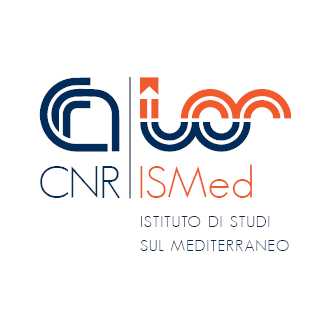Regeneration and sustainable planning of contemporary cities and territories
Coordinator: Giuseppe Mazzeo
Abstract
Urban and territorial planning falls within macro-sector 08/F1 “Urban and territorial planning and design”, which represents the combination of sectors: ICAR/20 “Urban planning and technology” and ICAR/21 “Urbanism”.
The research line is fully in line with this field, as it is dedicated to deepening the research aspects related to the governance of urban and territorial transformations in a phase of profound rethinking of planning tools, methods and techniques. It is indeed necessary to modify the approaches and paradigms that have guided urban and territorial development up to now, in order to favour the transition towards a society that is more attentive to the use of non-renewable resources and oriented towards environmentally sustainable solutions.
If in recent decades, the principle that has guided the growth of contemporary urban systems has been above all competitiveness, in order to win the challenges of globalisation, even at the expense of protecting the identity of places and sustainable development, today, due to a growing and global economic crisis, the high consumption of territorial resources, and the current pandemic, cities must review their agendas to promote strategies of innovative adaptation to continuous emergencies.
A necessary condition is that the transformations of the built environment reflect not only political, economic and cultural changes, but also people’s everyday experience of urban space.
In continuity with these concepts, important references are the New Urban Agenda, which represents a shared vision for a better and more sustainable future, the 2030 Agenda for Sustainable Development, with its 17 Sustainable Development Goals (SDGs), and national and European cooperation policies within the Mediterranean basin.
The research will focus on the Mediterranean settlement systems, as a specific macro-area of attention for ISMed. In particular, the following will be studied: urban and metropolitan systems, historical centres, suburbs, public spaces, abandoned areas.
Objectives
The objectives of the research line are
- to analyse and deepen the most recent and innovative trends in the field of spatial and urban planning in a local and international perspective;
- to deepen the evolution of methodologies, techniques and processes that make planning a relevant tool in the preparation and implementation of actions of adaptation and mitigation of risks;
- to identify and design factors and connections that determine the quality of life, liveability and health of anthropised environments.
These objectives constitute a non-exhaustive reference basis. They can be extended and integrated.
Activities
The multiple research activities can be summarised as the need to deepen methodologies and methods for the protection, development and transformation of the city, the territory and their cultural heritage in a way that is compatible with the current and future needs of environmental and social sustainability, within a holistic vision of the territory.
This implies a specific focus on the study of current trends, the development of tools for the mitigation of natural and anthropic risks, in-depth study of the role of information and communication technologies, and the identification of national and international best practices. New approaches to design and planning aimed at urban and territorial regeneration and the enhancement of cultural resources can be derived from them in order to improve the levels of environmental sustainability, urban quality and social inclusion.
Themes
The themes of the research project have as their common denominator sustainability in its triple meaning and a holistic approach. They concern
- theories, methods, techniques and tools for the analysis, programming, planning, design and management of interventions for the transformation of the environment, landscape, urban and territorial systems, organisational structures and morphologies of human settlements;
- theories, methodologies and tools for the analysis and design of healthy and liveable urban environments;
- analysis, evaluation and design of human settlement in relation to its historical development, social and economic situation, landscape reality, environmental context, cultural heritage and natural and anthropogenic risk factors;
- issues related to territorial governance and strategic assessments;
- methods, tools and practices of physical planning and design aimed at the recovery, redevelopment and sustainable and resilient regeneration of settlements at different scales;
- integration between urban and spatial planning and mitigation and adaptation measures to cope with the impacts of climate change.
- ICT and cities: new solutions for inclusive and sustainable cities
Main collaborations
- Department of Civil, Building and Environmental Engineering of the University of Naples Federico II
- Department of Architecture of the University of Naples Federico II
- Department of Engineering of the University of Sannio
- INU – National Institute of Urban Planning
- SIU – Italian Society of Town Planners
- EURA – European Urban Research Association
- Local authorities (Municipalities, Region, Metropolitan City)
Main results and collective products
- Scientific monographs and publications in journals, volumes and conference proceedings with national and international impact
- Research projects
- Scientific collaborations with local authorities and subjects operating in the field of research, higher education, culture and territorial planning
- Organisation of scientific and cultural events
Last update
20 November 2023, 11:59

 CNR – ISMed
CNR – ISMed